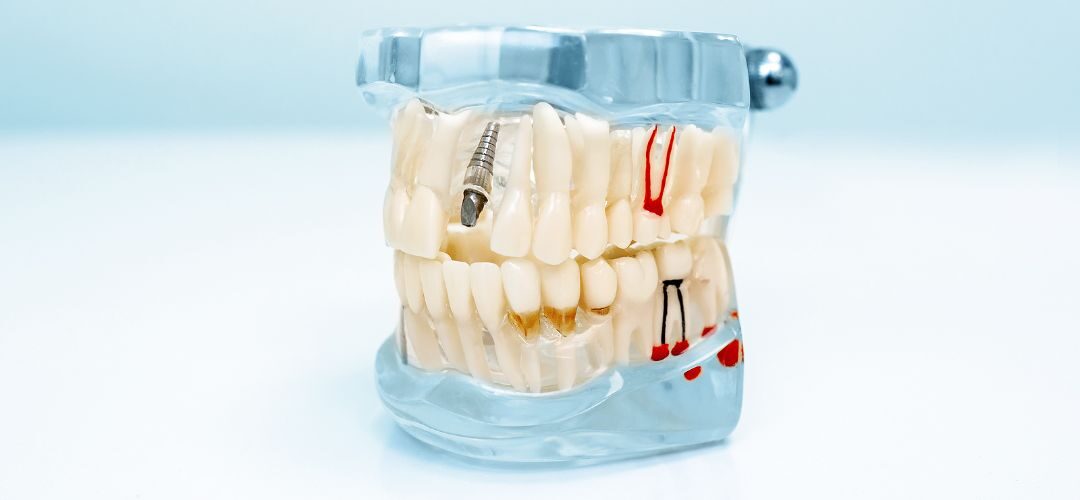Ensuring a bright and healthy smile is essential, and dental implants have rapidly become a reliable solution for replacing missing teeth. However, a swirl of myths and misconceptions often surrounds them. This guide dives deep into the common myths and facts about dental implants, clarifying everything you need to know about this effective dental procedure.
What Are Dental Implants?
Dental implants are permanent replacements for missing teeth. They consist of a titanium post that is surgically positioned into the jawbone beneath the gum line, allowing the dentist to mount replacement teeth or a bridge into that area.
These implants provide a stable foundation and are designed to blend seamlessly with your natural teeth.
Myth 1: Dental Implants Are Painful
Many people believe that getting dental implants is a painful experience. While it’s true that the procedure involves surgery, advances in dental technology have made the experience much more comfortable.
Local anesthesia and sedation dentistry techniques ensure that patients feel minimal discomfort during the implant procedure.
Fact Check: Recovery & Post-Procedure Pain
Post-procedure discomfort can typically be managed with over-the-counter pain relievers. Some patients may experience mild swelling and discomfort, but these symptoms generally subside within a few days.
Proper care, such as following the dentist’s instructions, can significantly reduce pain during recovery.
Myth 2: Dental Implants Have A Low Success Rate
There’s a misconception that dental implants are not reliable and have a low success rate. This couldn’t be further from the truth.
Fact: High Success Rates
According to the American Dental Association, dental implants have a success rate of up to 98% when performed by a trained dental professional. Factors contributing to this high success rate include advancements in dental technology, improved surgical techniques, and rigorous patient selection protocols.
Myth 3: Dental Implants Cause Infections
One of the common myths surrounding dental implants is that they lead to frequent infections. This myth often deters people from considering dental implants as a viable option for replacing missing teeth.
Fact: Infection Risks & Prevention
While there is a risk of infection with any surgical procedure, the likelihood of developing an infection from a dental implant is low, particularly when performed under sterile conditions and following post-operative care guidelines.
Maintaining excellent oral hygiene and regular dental check-ups further reduce the risk of infection.
The Implant Procedure: A Step-by-Step Journey
Getting a dental implant can be overwhelming and many people don’t know what to expect or how long it may take. Your dentist will have more detailed and in-depth answers to your questions but implant procedures generally follow a few steps.
- Initial Consultation: During the initial consultation, the dentist evaluates your oral health, including bone density and jaw bone structure, to determine if you’re a suitable candidate for dental implants.
- Surgical Placement Of The Implant: The titanium dental implant post is surgically placed into the jaw bone. This step is crucial as the implant must fuse with the bone in a process called osseointegration, which typically takes several months.
- Placement Of The Abutment: Once the implant has successfully integrated with the jaw bone, an abutment is attached to the post. The abutment serves as a connector between the implant and the prosthetic tooth.
- Final Placement Of The Prosthetic Tooth: Finally, a custom-made prosthetic tooth, designed to match your natural teeth, is attached to the abutment, completing the process.
Benefits of Dental Implants
- Natural Appearance: Dental implants look and feel like natural teeth, providing an aesthetic solution for tooth loss.
- Durability: With proper care, dental implants can last a lifetime, making them a cost-effective long-term solution.
- Improved Oral Health: Unlike bridges, dental implants do not require the reduction of adjacent teeth, preserving natural tooth structure.
- Enhanced Comfort: Implants become part of your jawbone, eliminating the discomfort of removable dentures.
- Improved Speaking and Chewing: Because they function like natural teeth, implants restore the ability to speak clearly and chew efficiently.
Risks Associated With Dental Implants
- Nerve Damage: If placed incorrectly, there is a risk of nerve damage, leading to tingling, numbness, or pain.
- Sinus Issues: Upper jaw implants may protrude into sinus cavities, potentially causing complications.
- Infection: Poor oral hygiene or failure to follow post-operative care can lead to infections.
- Implant Failure: While rare, implants can fail to integrate with the bone or become loose over time.
- Tension Headaches: Some patients report tension headaches during the healing process, often due to jaw adjustments.
Proper Care For Dental Implants
To ensure the longevity of your dental implants, brush at least twice a day, floss daily, and visit your dentist regularly for check-ups and professional cleanings. Avoid tobacco products, as they can hinder healing and increase the risk of implant failure. Additionally, maintain a balanced diet rich in vitamins and minerals to support overall dental health. By following these guidelines, you can keep your implants in optimal condition for years to come.
Your Path To A Healthy Smile With Pro Smile Dental Care
If you’re in Danville, CA, and considering dental implants, Pro Smile Dental Care offers expert services to restore your smile and improve your quality of life. Our team is committed to providing the best care possible. Contact us today to schedule a consultation and take the first step towards a brighter, healthier smile.





